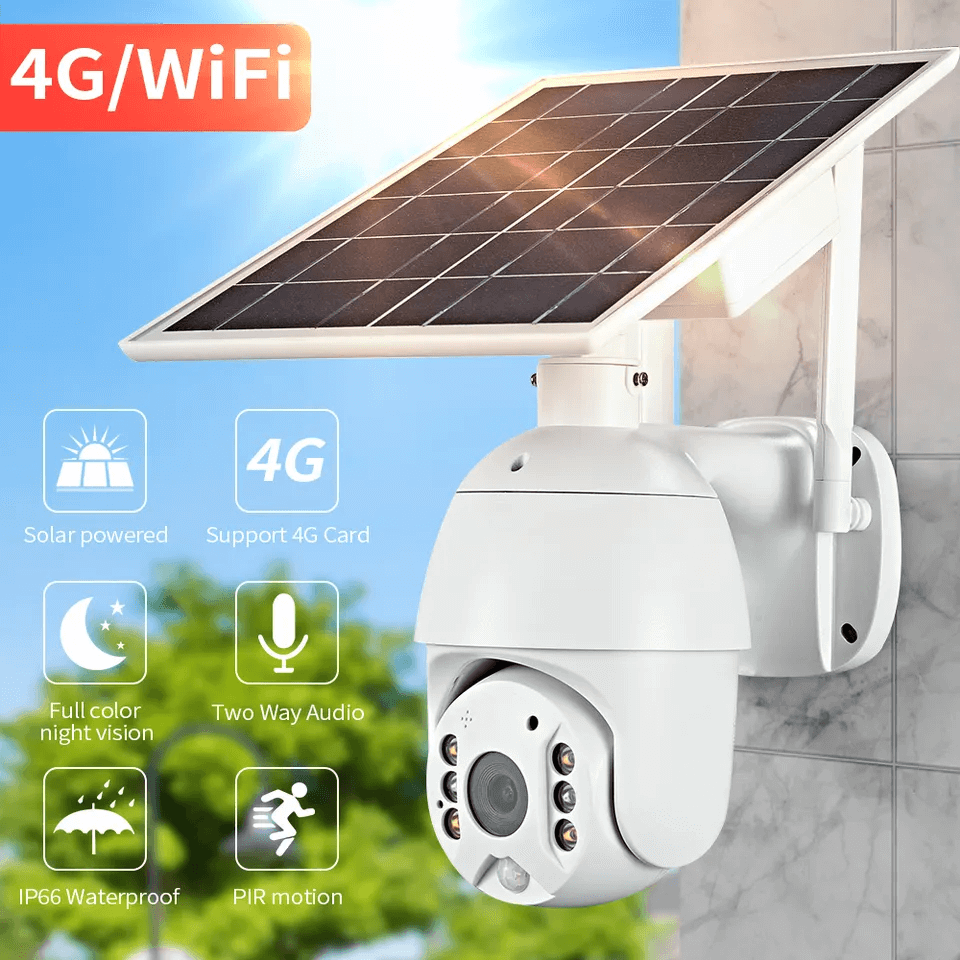The Ultimate Guide to Solar Wireless Cameras
Wireless cameras have become a popular choice for surveillance systems, especially in areas where wired cameras are impractical. These cameras transmit video signals to a receiver via a wireless network, eliminating the need for physical wires to connect the camera to the recording device. However, wireless cameras still require a power source, which can be a challenge in areas without easy access to electricity. This is where solar wireless cameras come in.
What are solar wireless cameras?
Solar wireless cameras are security cameras that use solar panels to generate their own power, eliminating the need for a wired power source. These cameras are ideal for remote locations, areas without access to electricity, or situations where running wires is impractical or too expensive.

How do solar wireless cameras work?
Solar wireless cameras use a combination of solar panels and rechargeable batteries to generate and store power. During the day, the solar panels collect energy from the sun and convert it into electricity, which is used to power the camera and recharge the batteries. At night or during periods of low light, the camera switches to battery power, which allows it to continue operating without interruption.
Benefits of using solar wireless cameras
Solar wireless cameras offer several key benefits over traditional wired or battery-powered wireless cameras. One of the biggest advantages is that they do not require a wired power source, which can greatly simplify installation and reduce costs. With no need to run power cables, installation can be quicker and more flexible, and there is no need to disrupt walls or structures to run wires.
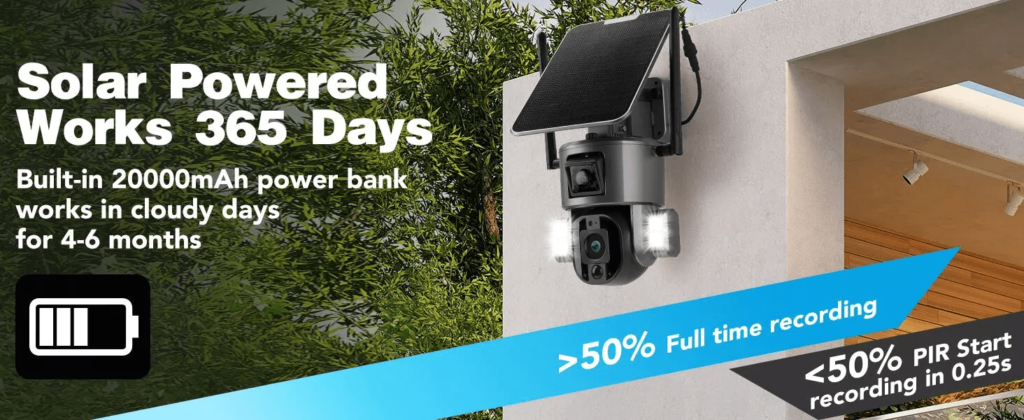
Another advantage of solar wireless cameras is that they are environmentally friendly. By using renewable solar energy to power the camera, they can help reduce reliance on non-renewable energy sources and decrease carbon emissions.
In addition to their installation and environmental benefits, solar wireless cameras offer increased flexibility in camera placement. Because they do not require a wired power source, they can be placed in locations that may not be easily accessible with traditional wired cameras. This can be particularly useful for monitoring remote or outdoor locations.
Another advantage of solar wireless cameras is that they are not subject to power outages or disruptions. Since they do not rely on a wired power source or battery, they can continue to operate even during extended power outages or other disruptions.

Finally, solar wireless cameras can offer reduced maintenance costs over time. With no need to replace batteries or run new wiring, maintenance requirements can be significantly reduced, making them a cost-effective and convenient option for long-term surveillance and security.
What to consider before purchasing a solar wireless camera
Before purchasing a solar wireless camera, it’s important to consider several factors to ensure that the camera will meet your needs. First, you’ll want to evaluate the amount of sunlight the camera will receive in its intended location to determine if the solar panel will be able to provide enough power to keep the camera running. You should also consider the size of the solar panel, as a larger panel will be able to capture more energy and keep the battery charged for longer periods of time.
In addition to power considerations, you’ll want to evaluate the battery capacity to ensure that the camera will continue to operate even during extended periods of low sunlight. You should also evaluate the type of camera and its features to ensure that it meets your needs for surveillance and security. The quality of the video footage should also be considered, as you’ll want to be able to clearly see any activity around your property.
Finally, you’ll want to evaluate the operating temperature range, as well as the durability and weather resistance of the camera to ensure that it will be able to withstand exposure to the elements over time.
Features to look for in a solar wireless camera
When shopping for a solar wireless camera, there are several key features to look for to ensure that you get the best possible performance and security. First, high-definition video resolution is essential to ensure that you can clearly see any activity around your property. Motion detection and alerts are also important features, as they can help to ensure that you are notified in real-time when any motion is detected.
Night vision is also a critical feature, as it allows the camera to capture clear footage even in low-light conditions. Two-way audio is another useful feature that allows you to communicate with anyone on your property, such as a delivery person or visitor. Mobile app compatibility is also important, as it allows you to monitor your camera from anywhere with an internet connection.
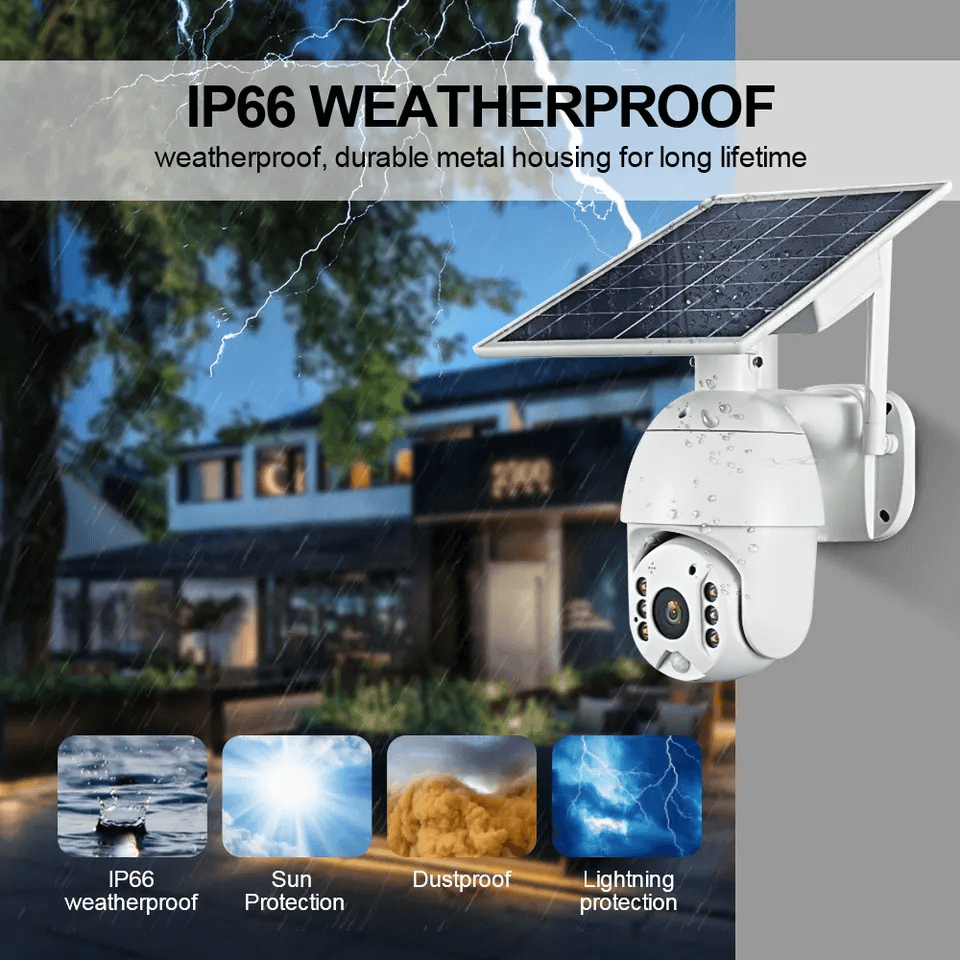
Weather resistance and durability are also critical features, as they ensure that the camera will be able to withstand exposure to the elements over time. A wide-angle lens can also be useful, as it allows you to capture a broader view of your property. Finally, remote access and control can be a useful feature that allows you to adjust camera settings and view footage from anywhere with an internet connection.
Installation and setup of a solar wireless camera
Installing a solar wireless camera is a relatively simple process that can be done by most DIY enthusiasts. The first step is to select the location for the camera and ensure that it will receive adequate sunlight. Once the location is selected, the solar panel and camera can be mounted, and the battery can be connected. Finally, the camera can be connected to a wireless network and configured using the manufacturer’s app or software.
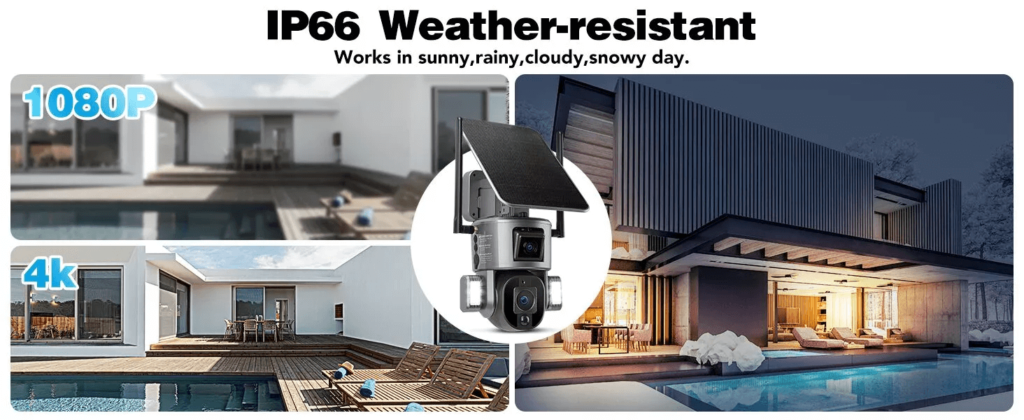
Maintenance and care of solar wireless cameras
To ensure your solar wireless camera continues to operate at optimal levels, it’s important to perform regular maintenance and care. Here are some tips to keep in mind:
Keep the solar panel clean: Dirty or dusty solar panels can reduce the amount of energy they can absorb. Make sure to clean the panel regularly with a soft cloth and mild detergent.
Check the battery: Regularly check the battery to ensure it’s charging properly and holding a charge. Replace the battery if necessary.
Inspect the camera: Check the camera housing and mounting hardware to ensure they are secure and free from damage. Replace any damaged parts immediately.
Check the wireless connection: Make sure the camera is still connected to the wireless network and that the signal strength is strong.
Test the camera: Test the camera regularly to ensure it’s capturing clear video footage and the motion detection and alert features are working properly.
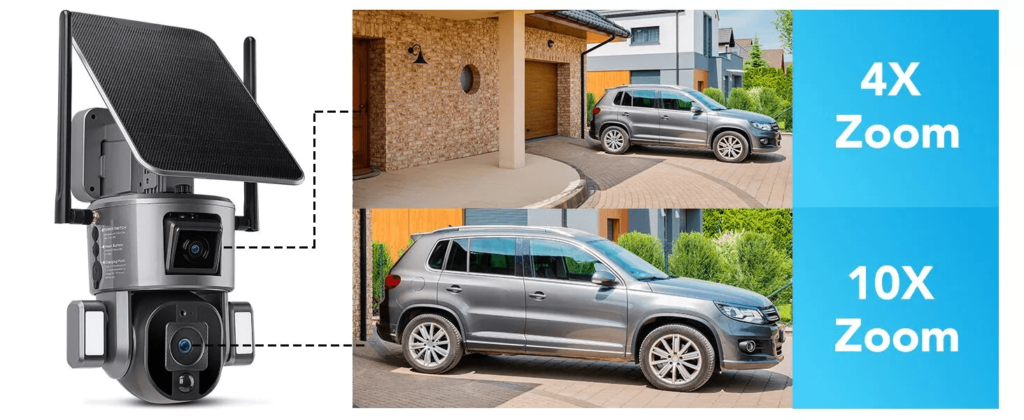
Comparing solar wireless cameras with traditional wired cameras
Solar wireless cameras offer several advantages over traditional wired cameras, including:
No need for wiring: Solar wireless cameras can be installed in locations where it’s impractical or too expensive to run wiring.
Easy installation: Solar wireless cameras can be installed quickly and easily, often without the need for professional installation.
Flexibility: Solar wireless cameras can be placed in a wider range of locations, including areas without access to electricity.
However, traditional wired cameras do offer some benefits over solar wireless cameras, such as a more stable power source and higher video quality.
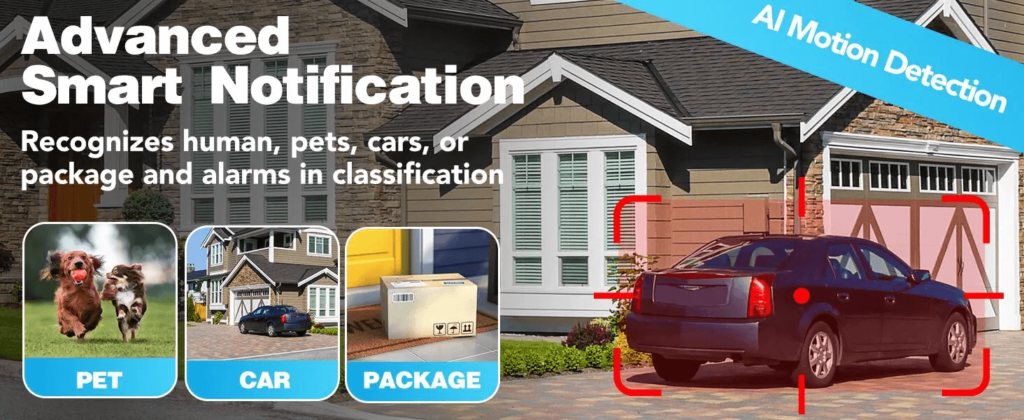
Common applications of solar wireless cameras
Solar wireless cameras can be used in a variety of applications, including:
Home security: Solar wireless cameras can provide an added layer of security for homes, especially in areas without access to electricity.
Farm and ranch surveillance: Solar wireless cameras can monitor livestock and equipment in remote locations.
Construction site surveillance: Solar wireless cameras can monitor construction sites, providing added security and helping to prevent theft and vandalism.
Wildlife monitoring: Solar wireless cameras can be used to monitor wildlife in remote locations.
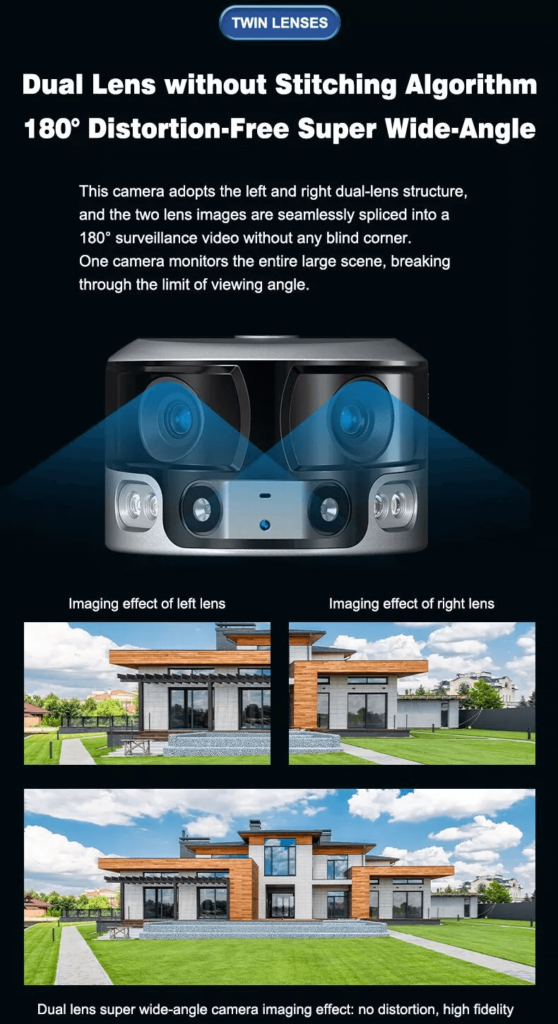
Conclusion
Solar wireless cameras are an innovative and effective solution for providing surveillance in areas where wired cameras are impractical or too expensive. With their ability to generate their own power and transmit video signals wirelessly, solar wireless cameras offer a number of advantages over traditional wired cameras. By considering the factors outlined in this guide, you can select a solar wireless camera that best meets your needs and provides the security you need.
At JER Technology Co., Ltd, we are committed to providing high-quality solar wireless cameras that meet the needs of our customers. With 13 years of experience in the industry, we understand the importance of reliable and efficient surveillance solutions, and we strive to deliver products that are both effective and environmentally friendly. We use the latest technology to ensure that our cameras are reliable and durable, and we stand behind our products with a commitment to customer satisfaction.
Whether you need a solar wireless camera for your home, business, or other property, we have the expertise and experience to help you find the right solution. Contact us today to learn more about our products and services.
FAQs
Can solar wireless cameras be used indoors?
Yes, solar wireless cameras can be used indoors as long as they receive adequate sunlight.
How long does the battery last on a solar wireless camera
The battery life will depend on the size of the battery and the amount of sunlight the camera receives. Most solar wireless cameras have a battery life of 3-6 months.
Do solar wireless cameras work in cold weather?
Most solar wireless cameras are designed to operate in a range of temperatures, but it’s important to check the manufacturer’s specifications to ensure the camera is suitable for the climate in which it will be used.
Can solar wireless cameras be accessed remotely?
Yes, most solar wireless cameras can be accessed remotely using a mobile app or web browser.
Do solar wireless cameras require a data plan?
No, solar wireless cameras do not require a data plan. They transmit video signals wirelessly, either directly to a receiver or via a wireless network.

